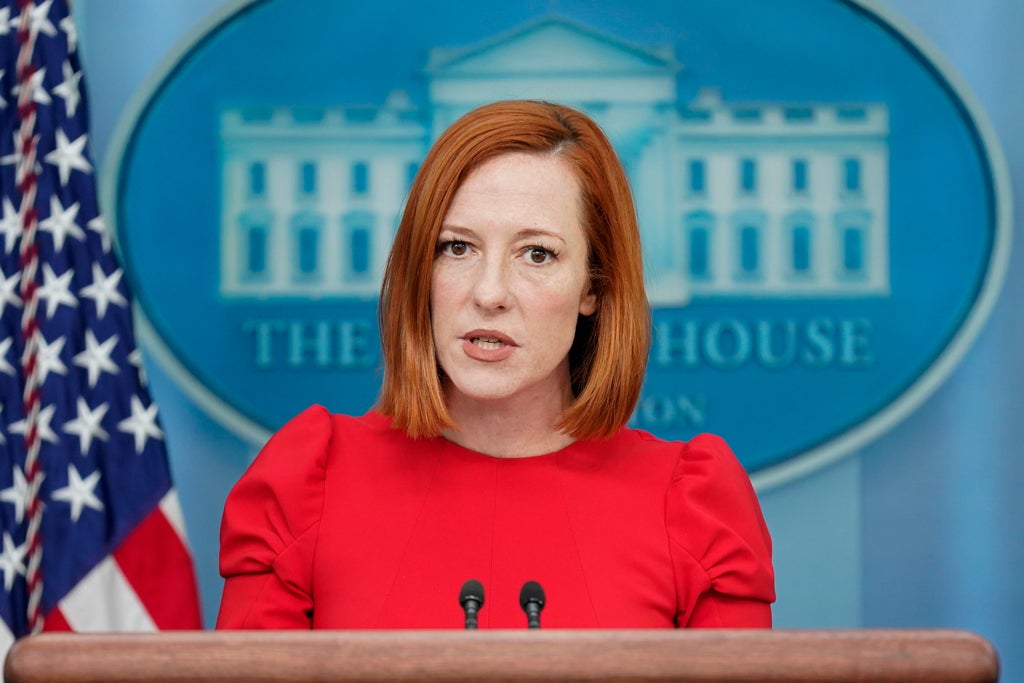
White House Press Secretary Jen Psaki on Friday distanced the United States government from Senator Lindsey Graham’s call for members of Russian president Vladimir Putin’s inner circle to assassinate the leader.
On Thursday, Mr Graham — a South Carolina Republican — took to Twitter as video emerged of Russian forces shelling the largest nuclear power plant in Europe to invoke the names of two prominent historical assassins and suggest that a member of Mr Putin’s inner circle emulate them to bring Russia’s invasion of Ukraine to an end.
“Is there a Brutus in Russia? Is there a more successful Colonel Stauffenberg in the Russian military? The only way this ends is for somebody in Russia to take this guy out,” he wrote.
Marcus Junius Brutus, a Roman senator, was the most prominent of the 60 men who conspired to assassinate Roman dictator Julius Caesar in 44 BC, while Claus Schenk Graf von Stauffenberg, a German Army Colonel, was a key member of the German resistance within the Wehrmacht who was executed after the failure of the 20 July 1944 assassination attempt on Adolf Hitler.
Mr Graham walked about the comments Friday morning during an appearance on Fox and Friends, instead saying he believes Mr Putin should “go to jail”.
Asked about Mr Graham’s statement, Ms Psaki told reporters that his calls for Mr Putin’s assassination did not represent “the position of the United States government” and said such a statement was “certainly not” something one would hear “from anybody working in this administration”.
A 1983 presidential directive signed by then-president Ronald Reagan — Executive Order 12333 — explicitly bans the use assassination as a tactic by American operatives.
It reads: “No person employed by or acting on behalf of the United States Government shall engage in, or conspire to engage in, assassination”.
Two orders by Reagan’s two immediate predecessors, Jimmy Carter and Gerald Ford, also prohibit indirect involvement in assassinations as well.
Ms Psaki said President Joe Biden still believes there is a “diplomatic path forward” to bring Russia’s hostilities against Ukraine to an end if Mr Putin chooses to “de-escalate”.
“If de-escalation occurs, obviously, humanitarian corridors, a ceasefire, those would all be steps that would be welcomed,” she said. “But no, we are not advocating for killing the leader of a foreign country or regime change — that is not the policy of the United States”.







